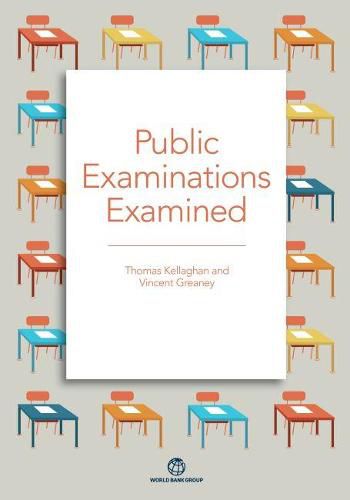Readings Newsletter
Become a Readings Member to make your shopping experience even easier.
Sign in or sign up for free!
You’re not far away from qualifying for FREE standard shipping within Australia
You’ve qualified for FREE standard shipping within Australia
The cart is loading…






This book addresses current issues related to the development, administration, scoring and usage of public examinations. High-stakes public examinations exert a dominant influence on education systems in Asia, Africa, Europe, Central Asia, the Middle East, and North Africa. They tend to have a major influence on teacher and student behavior, especially at the middle and upper levels of secondary education. The content of past examination papers tends to dictate what is taught and how it is taught and, more important, what is learned and how it is learned. This volume identifies key issues and problems related to examinations in a large number of emerging economies as well as in a number of OECD countries. Examination agencies, many of which have followed the same procedures over decades, can learn from the successes and failures of other systems. By changing aspects of these examinations, especially their content and format, education systems can have a strong positive impact on teacher and student learning, help raise student achievement levels, and better prepare students for tertiary-level education and for employment. The primary target audience for the book is public examination officials in national, regional, and state examination boards. The book should also be of interest to senior educational policy makers concerned with certification and learning achievement standards, for governmental and tertiary agencies responsible for student selection, and for professionals at development agencies
$9.00 standard shipping within Australia
FREE standard shipping within Australia for orders over $100.00
Express & International shipping calculated at checkout
This book addresses current issues related to the development, administration, scoring and usage of public examinations. High-stakes public examinations exert a dominant influence on education systems in Asia, Africa, Europe, Central Asia, the Middle East, and North Africa. They tend to have a major influence on teacher and student behavior, especially at the middle and upper levels of secondary education. The content of past examination papers tends to dictate what is taught and how it is taught and, more important, what is learned and how it is learned. This volume identifies key issues and problems related to examinations in a large number of emerging economies as well as in a number of OECD countries. Examination agencies, many of which have followed the same procedures over decades, can learn from the successes and failures of other systems. By changing aspects of these examinations, especially their content and format, education systems can have a strong positive impact on teacher and student learning, help raise student achievement levels, and better prepare students for tertiary-level education and for employment. The primary target audience for the book is public examination officials in national, regional, and state examination boards. The book should also be of interest to senior educational policy makers concerned with certification and learning achievement standards, for governmental and tertiary agencies responsible for student selection, and for professionals at development agencies